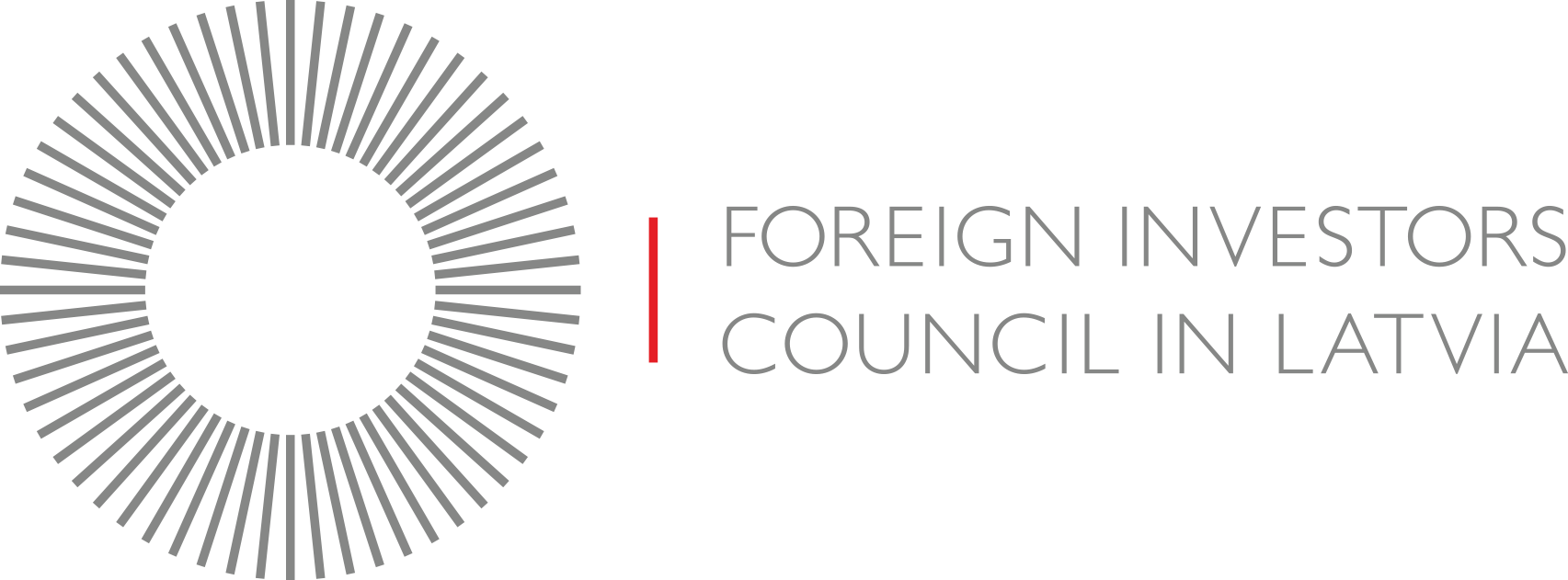On 31st October, the conference “Sustainability for Economic Resilience” took place at the Saeima/Parliament, bringing together over 120 representatives from government, academia and private sector to discuss practical steps for integrating sustainability into national policy and planning. The conference highlighted different aspects of sustainability – economic, environmental and social, placing emphasis on importance of protecting biodiversity, promoting resilience, and placing the value of human life at the centre. The key message of the speakers – sustainability is not in conflict with competitiveness. On the contrary, they are mutually reinforcing concepts, which foster long-term economic stability, innovation and responsibility.
The conference “Sustainability for Economic Resilience” was jointly organised by the Saeima, Foreign Investors’ Council in Latvia (FICIL) and CSR Latvia, with the aim to build a shared understanding between policymakers and business representatives of how sustainability can serve as a foundation for Latvia’s economic resilience and long-term competitiveness, as well as, to outline a clear roadmap for integrating these principles into national legislation and policy planning. The presentations and discussions touched on different topics – human capital, innovation, financial instruments, data-driven governance and effective cooperation between the public and private sectors to ensure that sustainability principles are embedded across Latvia’s policy planning and implementation.
Daiga Mieriņa, Speaker of the Saeima, opened the conference by emphasising Latvia’s shared responsibility for sustainable growth: “The key word today is sustainability. Our aim is to hear entrepreneurs’ concerns about corporate responsibility, rising quality requirements and the opportunities for growth so that sustainability becomes the norm. Companies that already integrate sustainability principles can attract capital, talent and public trust — and this should also guide the state’s long-term strategy. We must not be afraid to be among the first in Europe, especially when it strengthens entrepreneurship and investment in Latvia. To think sustainably means to think strategically, to act sustainably means to act responsibly. Our task is to leave this world to our children in a better state than we received it.”
Addressing the role of finance in achieving sustainability, Māris Vainovskis, FICIL Board Member, Chair of the Investment Protection Work Group, and Senior Partner at Eversheds Sutherland Bitāns, stressed that lasting transformation depends on stable policy frameworks and predictable investment conditions. He pointed to the need for accessible financial instruments, closer public-private cooperation, and greater mobilisation of private capital for strategic projects. “The implementation of sustainability and resilience measures must be planned and executed in close connection with realistically accessible financing from the state budget, EU funds, the private sector and other sources. The challenge lies in matching national ambitions with financial capabilities to drive economic transformation,” said Māris Vainovskis, adding that long-term competitiveness depends on innovation, efficiency and partnership between public and private capital.
Dace Cīrule, Leader of FICIL’s Energy and Sustainability Work Group and Partner at LarkLaw, noted that: “We are not interested in superficial conversations or vague texts, and even less in beautiful words that are not followed by practical action. What matters most is that there is always someone who stands up and speaks honestly. I sincerely thank everyone who has taken the time to meet and discuss these issues with us throughout the year.”
Speakers from the financial, academic and governmental sectors — including Professor Jānis Priede (University of Latvia), Edvards Kušners (Bank of Latvia), Olga Bogdanova (Deputy State Secretary, Ministry of Climate and Energy), and Linda Austere (CSR Latvia) — provided expert insights on the role of financial instruments, governance and human capital in promoting sustainability and resilience.
The second part of the conference featured two panel discussions focused on actionable policy proposals. The first, “Sustainability Strategy and Human Capital,” moderated by Antra Birzule (CSR Latvia), explored sustainability as a core component of Latvia’s economic development strategy and addressed sectoral sustainability targets in the context of climate adaptation and human capital development. The panel brought together Jurģis Miezainis (Parliamentary Secretary, Ministry of Economics), Skaidrīte Ābrama (Member of the 14th Saeima), Anita Skudra (Chair of the Board, Rīgas meži), and Professor Inna Šteinbuka (University of Latvia).
The second discussion, “Sustainability Governance, Data and Finance,” moderated by Andris Liepiņš (Partner, Deloitte Latvia), examined evidence-based decision-making, the distribution of responsibilities in sustainability policy, data collection and transparency, and financing opportunities for resilience and sustainability — including the use of EU funds and new financial instruments. The panel featured Olga Bogdanova (Deputy State Secretary, Ministry of Climate and Energy), Kaspars Briškens (Chair of the Saeima Economic, Agricultural, Environmental and Regional Policy Committee), Arturs Evarts (Board Member, CSR Latvia), and Nora Pastore (Chair of the Sustainable Finance Working Group, Finance Latvia Association).
Participants agreed that sustainability and competitiveness must advance in parallel. Latvia’s success depends on clear priorities, measurable goals and consistent implementation rather than strategy drafting for its own sake. The conference concluded with an agreement to prepare a joint resolution to be further discussed within the Saeima Sustainable Development Commission and subsequently submitted to the Cabinet of Ministers, outlining concrete proposals for embedding sustainability principles across national policy and planning processes.
A full recording of the conference “Sustainability for Economic Resilience” is available here.


